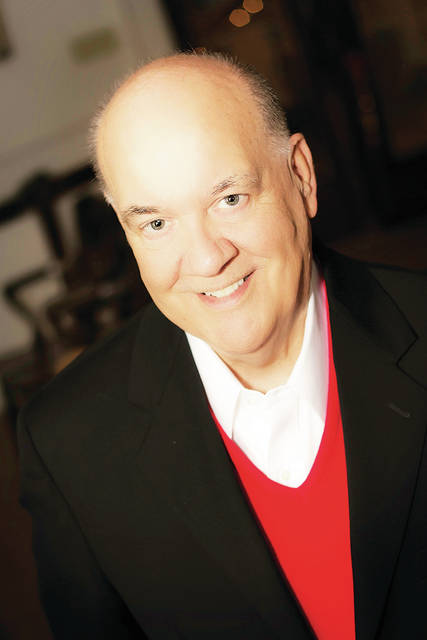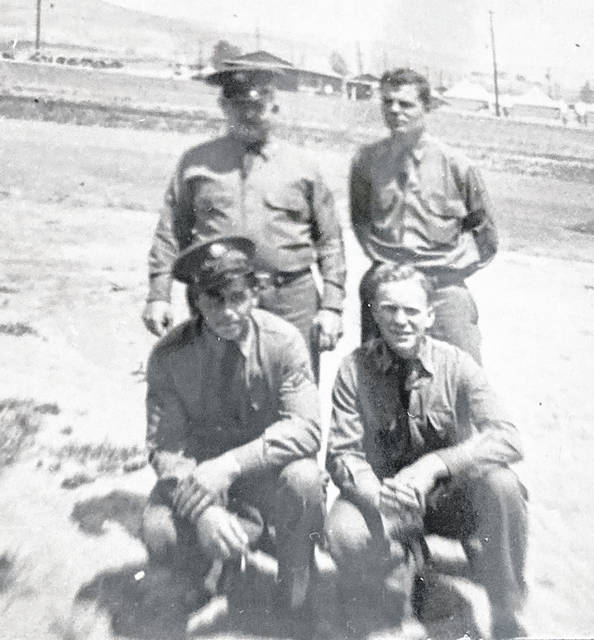

There was a time when America was different. An era when men trudged over the Rocky Mountains, through the intense, scorching heat of the Nebraska flatlands and around the Salt Lakes of Utah to build a railroad.
Stephen Ambrose told the story of the men who built the Transcontinental Railroad in his book, “Nothing Like It in the World.” And indeed, there wasn’t anything like linking the east and west coasts of the United States together with thousands of miles of steel and 10-foot wooden ties.
Railroads have a certain mystique. My great-grandfather, William Haley, was a railroad man. He was 27 when he arrived in Wilmington from Ireland in the 1860s. He worked for some time on the railroad as a section hand, a Gandy Dancer, about the same time John Henry was swinging a heavy hammer in coal country deep within the West Virginia mountains.
As thousands of men drove the spikes and laid the steel, railroad towns sprang up like dandelions. North Platte, Nebraska, was one such town, small and isolated in the center of America. Many years later it would touch the Haley Family in two very unexpected ways.
Born during the construction of the Transcontinental Railroad, North Platte became a major supply depot for Union Pacific’s construction materials. It was also home to a large assemblage of United States military personnel.
The military depended on trains as the primary method of moving troops, reaching a crescendo during the Second World War.
In the early days of World War II, my uncle Patsy Waldren, a shy, stout farm boy, was inducted into the Armed Forces of the United States. It was early 1941 and little did Uncle Patsy realize that his days on the farm lay behind him, and four long years of war lay ahead of him.
Patsy wasn’t a typical soldier. As the military training became more demanding, Patsy became stouter and plumper. He was a handyman. He was a skilled carpenter, he could mow weeds all day using only a scythe, he could ride a horse, bake bread, fix sausage gravy, repair vehicles, and catch a baseball. He was an amiable fellow and had a good relationship with everyone he met.
He brought those talents to the Army, which might have allowed his superiors to look beyond his ever-expanding girth.
Patsy became a Staff Corporal at Fort Ord in California, serving as the company cook. Although he served four years in the Army, the pictures he sent home showed he never lost his bulk or his appetite.
Throughout the remainder of his life, Patsy talked little about his military service. However, when I was a young boy he told me about the one thing that touched him the most during his time in the Army.
He had been on a troop train en route cross country from Kentucky to California. He said early one morning the train whistle blew as they approached a small town, making a ten-minute stopover in North Platte, Nebraska.
Tears welled up in his eyes when he told me about jumping off the train and running into the Canteen at the Union Pacific Depot, suddenly encountering a roomful of women.
“The women looked just like my sister Ellen, my mother Catherine, and Aunt Mary. The Nebraskan women joyfully offered me a ham sandwich, a donut, an apple and half-pint of milk in a glass bottle,” he said. “It made me cry.”
“He went on to say, “Of all the adventures I had during the war, those ten minutes I spent in the North Platte Canteen were the most memorable. It showed people cared about other people and asked nothing in return,” he said.
Patsy had no way of knowing it at the time, but the good women of the North Platte Canteen, a converted Union Pacific Railroad Depot, greeted every single every troop train that came rolling through town, regardless of the hour, from 1941 to 1946.
Over the 54 months of the war, the feeding of the troops involved 50,000 volunteers and served over 6 million servicemen and women. They only spent five government dollars, and that was a five-dollar bill President Franklin Roosevelt sent them when he heard of the noble work being done by the townsfolk.
The second time North Platte touched the Haley Family was in 1957. The Cleveland Indians signed my brother, Jack, to a professional baseball contract as a pitcher and outfielder. The Indians sent him to play at Cody Park for the North Platte Indians in the Nebraska State League.
Cody Park where Jack played baseball is still there, but Fort Ord is gone, and the Union Pacific Railroad tore down the North Platte Canteen and Depot many years ago when passenger train service ended.
Long after the women served the last meal, long after the pitcher threw the last baseball, and long after the heat of war had cooled, the memories of good deeds still linger in the heartland of Nebraska and America.
And allows us to remember the darkest hour is often just before the dawn.
Pat Haley is a Clinton County native and former county commissioner and sheriff.
His book, “Around the Fire: Stories from Here and There” — comprised of his nonfiction stories in the News Journal through the years — is available through the Clinton County History Center in Wilmington, or you can reach Pat directly at 937-205-7844 or via email at [email protected] to purchase a copy.



